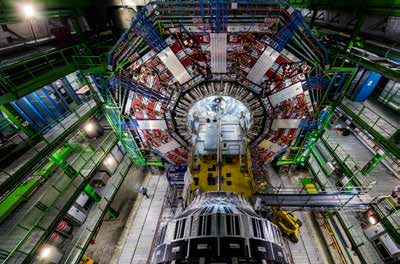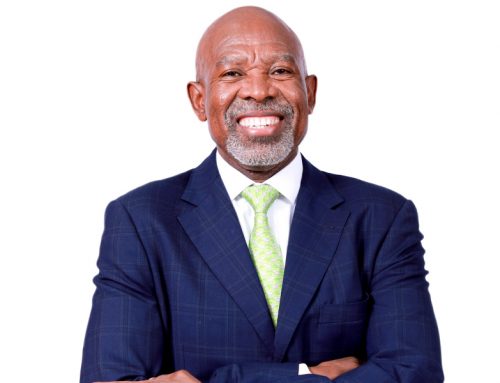 Professor Zeblon Vilakazi takes up his appointment as Wits University’s 15th Vice-Chancellor in January 2021. A nuclear physicist, it’s in the nature of his research to understand life from the smallest particle to the cosmos. His cultural perspective is equally expansive as he communicates in six languages: isiZulu, Sesotho, English, Afrikaans, French and German. He reads Cyrillic script and one of his favourite books is Dostoevsky’s Crime and Punishment.
Professor Zeblon Vilakazi takes up his appointment as Wits University’s 15th Vice-Chancellor in January 2021. A nuclear physicist, it’s in the nature of his research to understand life from the smallest particle to the cosmos. His cultural perspective is equally expansive as he communicates in six languages: isiZulu, Sesotho, English, Afrikaans, French and German. He reads Cyrillic script and one of his favourite books is Dostoevsky’s Crime and Punishment.
Should you catch him at home on a Sunday, you’ll hear Bach or jazz floating through the kitchen as he prepares a roast lamb for his wife Mary and their children.
It’s a brief respite from the parallel universe in which we are living during COVID-19, as Vilakazi explains:
“We are faced with the anguish of this pandemic and at the same time we are dealing with a whole lot of other challenges including the technological exponential that is rapidly transforming our lives in unprecedented ways, climate change, unemployment, inequality, biodiversity loss, freshwater shortages, food insecurity … the list is long.
“What we have to do is recalibrate our society to respond to these challenges. As universities we need to focus on research and innovation without borders. It’s an imperative and at the same time it is hugely exciting because it’s a catalyst for new and expanded opportunities for the academy and society.
Big ideas befit him and his stated ambition as VC designate is to create the MIT equivalent on the African continent at Wits: “I have been told that we cannot replicate MIT because we are an African university but why should this stop us? Wits and MIT both share a commitment to research rigour, creativity, innovation and imagination towards solving the hardest local and global challenges. Wits has done this since its outset when the university responded to the discovery of gold on the reef by doing deep-level mining research that put South Africa ahead of most countries in the world.
“We need to be bold and brave and build on our fantastic legacy of 100 years in 2022. All our faculties need to see themselves making Nobel-winning discoveries. We need to place ourselves on the next level of driving South Africa and Africa in the 4IR. As that English phrase goes ‘Necessity is the mother of invention’. If we look at MIT’s history, it was established out of necessity in the 1860s during the American Civil War and in the wake of the industrial revolution that was sweeping through America.
“MIT’s founder, natural scientist William Barton, said a new form of higher education was required to address the challenges posed by rapid advances in science and technology in the mid-19th century, for which the traditional higher education institutions were ill-prepared as they were stuck on outdated curricula.
“Likewise, we are facing very difficult times, the fourth industrial revolution and rapid advances in science, technology and every one of our disciplines,” Vilakazi elaborates. “What we have going for us is that Wits is a dynamic African research-intensive university situated in the continent’s most cosmopolitan city with a significant youth dividend. We need to turn this to our advantage, and take our University into the next century. We need to achieve the dream of transforming greater Braamfontein and beyond into an innovation hub with Wits at its centre.”
To advance Wits’ aspirations, the University has entered into partnerships with MIT and other leading international universities, that include postgraduate exchanges. “Having a strong international research profile gives us access to the big table and we need to leverage this. In the same way we need our alumni to support and champion us wherever they are in the world and to let us know when they feel we are doing things right and wrong as they are the guardians of our reputation.”
As part of the fast-track trajectory he envisages, Vilakazi says teaching and learning at Wits needs to respond to the technological, creative and entrepreneurship requirements of the 4IR, including quantum computing and technologies, the Sustainable Development Goals, transdisciplinary curricula, and latterly, the shift to online, hastened by the COVID-19 pandemic.
He emphasises that digital and hybrid learning is now a necessary component of education. “Time spent on campus is not about learning the basics that can be learnt online, it’s about students from diverse backgrounds coming together to interact, to discover and to experiment with possibility.”
Vilakazi would like his legacy as VC to be the creation of an environment for innovation and imagination that offers young people in all disciplines the opportunity to pursue their highest potential and ambitions, which, he says, is what got him to where he is today. Born and raised in Katlehong, a large township east of Johannesburg, he was the second youngest of eight. His mother was a housewife and his father ran a small shop in the community.
“There were difficult times in our community in the 1980s, but it was also when my interest in science was triggered,” he says. He explains that as a 12-year-old boy he was playing football outside a general store when he looked through the window and saw a black and white TV screening the launch of Columbia STS-1’s orbital flight from NASA’s space station in Florida on April 12 1981, which heralded a new era in space travel. “I was glued to it,” he says. He watched for an hour-and-a-half as the rocket shot into space and eventually all he could see was a tiny dot that disappeared from sight. A few weeks later he visited the planetarium at Wits. He was hooked.
In later years he says a combination of good fortune and opportunity came his way, with people guiding him along his physics path and advising him about scholarships for which he could apply, such as for CERN – the European Organisation for Nuclear Research.
Vilakazi has been part of the Wits management team for several years, and is attuned to the complexity of engaging a large population of students and staff. He was part of the university management during the 2015 #FeesMustFall protests, which, he says, in some ways was handled well and in others could have been better.
“We responded to the situation as best we could. You learn from all these experiences as our sector, being a microcosm of society, is facing a multiplicity of problems. Gender-based violence, sexual harassment and exclusion are major problems in our country and the world, and even one incident on campus is one incident too many. We need to deal with this through education and appropriate management intervention.”
Transformation is another pressing issue he will lead on, as he explains: “Over the last few years we have made great strides in creating an enabling environment for a diverse student and staff profile. This is reflected in the university’s demographic, which is amongst the most diverse in the country, both in terms of race and gender, and, increasingly, with a more international flavour. We will continue to address the challenges that still remain, such as with regards to the historically underrepresented groups, namely women and black Africans, in the higher echelons of academia, more specifically in the STEM disciplines.”
Vilakazi emphasizes that “at all levels the university transformation process needs to keep on creating an environment of diversity and inclusion, and to keep on creating conditions for the broader cross-section of every constituent of the university community to see themselves having a major role to play in this big and bold experiment we are embarking on”.
From Wits PhD to VC
Prof Zeblon Vilakazi graduated with a PhD from Wits in 1998. The mind of the man is reflected in his research interests: heavy-ion collisions at ultra-relativistic energies, and computational physics in relation to GRID computing.
After his PhD he was awarded a National Research Foundation postdoctoral fellowship at CERN in Geneva. This was followed by an academic position at the University of Cape Town where he was instrumental in creating SA-CERN – South Africa’s first programme based on the CERN Large Hadron Collider Project.
He became Vice-Principal in April this year and was the Deputy Vice-Chancellor of Research and Postgraduate Affairs since 2014. During this time he was instrumental in creating an enabling environment for a research-intensive and postgraduate-oriented university. This includes doubling Wits’ research output and increasing the number of postgraduate students to realise the University’s vision of becoming a research-intensive African university.
Prof Vilakazi chairs South Africa’s National Quantum Computing Working Committee which seeks to develop a framework for quantum computing and quantum technology-driven research and innovation in South Africa.
He was instrumental in Wits becoming the first African partner on the IBM Q Network earlier this year and will be chairing the Department of Science and Innovation’s National Working Committee to develop a framework for Quantum Computing and Quantum Technology-driven research and innovation in South Africa.




